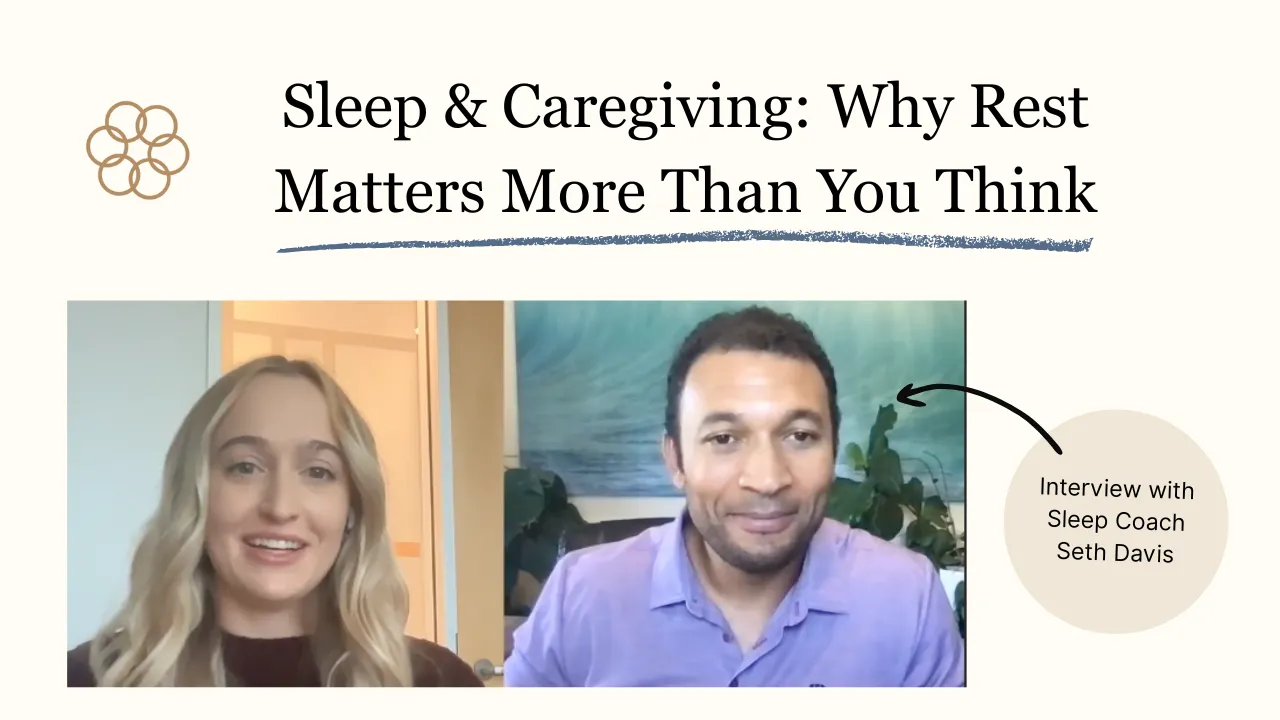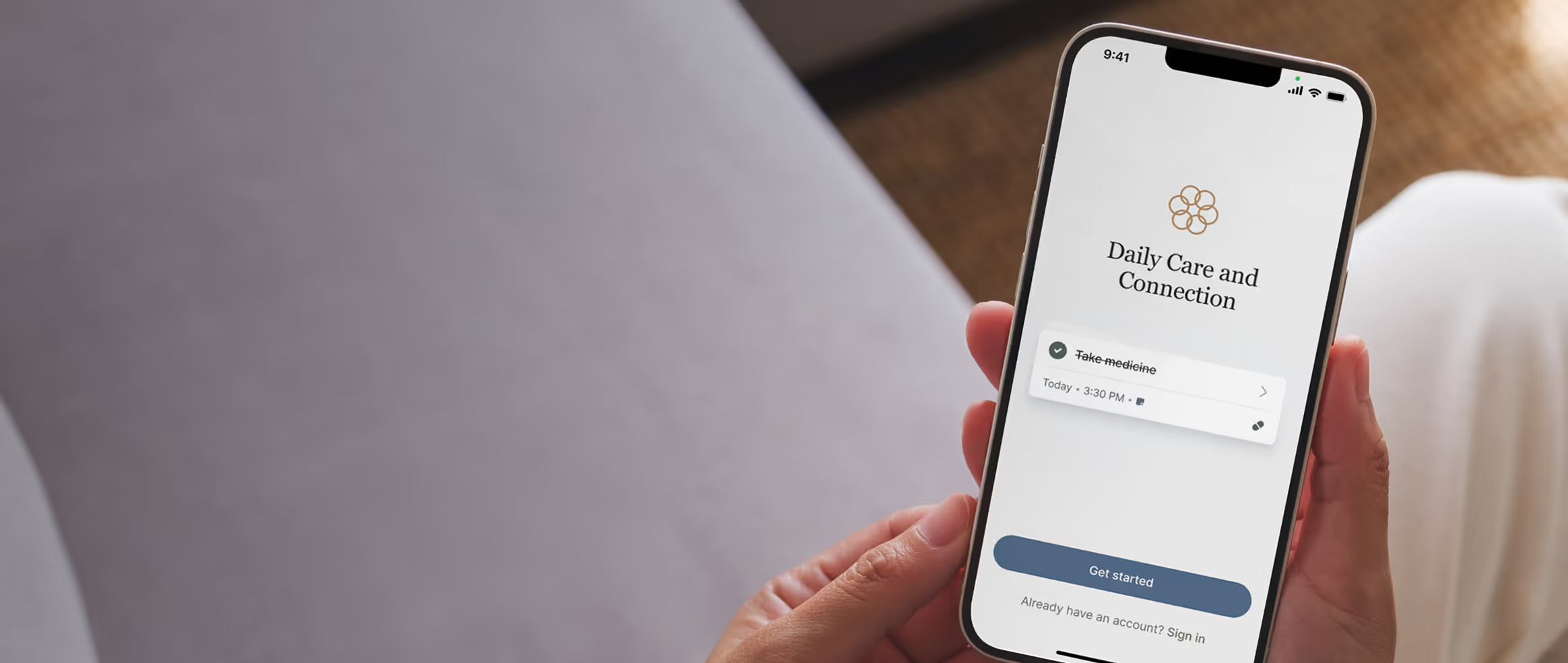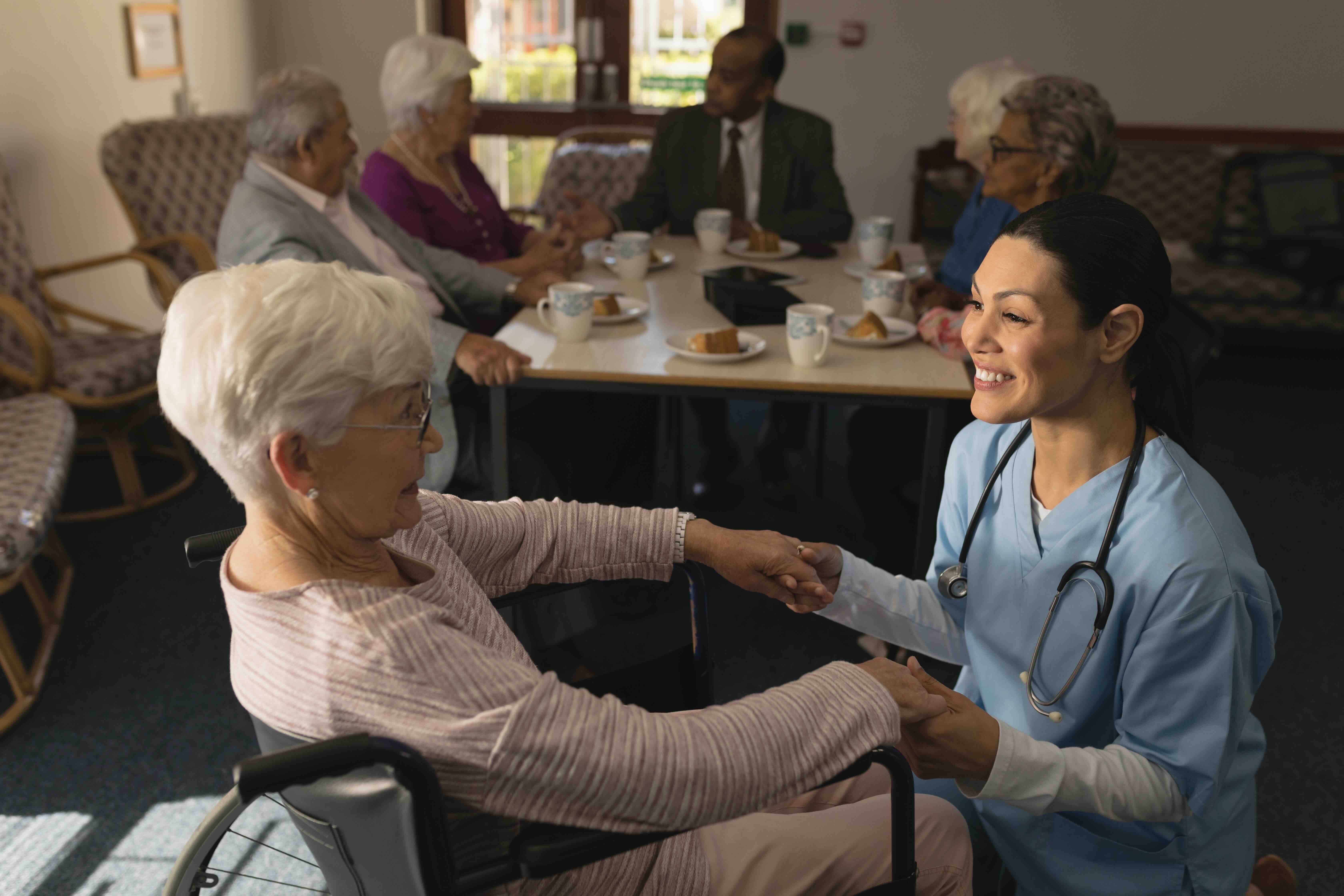Expert Sleep Tips for Stressed Caregivers

Sleep is one of the first things caregivers often sacrifice, but it’s essential for maintaining good health and making informed decisions.
Between nighttime disruptions, early wake-ups, and emotional overload, caregiving often comes at the cost of rest. However, skipping sleep can quietly erode your health, judgment, and ability to cope with stress.
To better understand the connection between sleep and caregiving, we spoke with Seth Davis, a certified adult sleep coach and founder of Sleepably. With years of experience supporting overwhelmed parents, professionals, and caregivers, Seth offers practical, judgment-free advice on how to recharge without guilt.
In this interview, we explore the health risks of poor sleep, the warning signs you may be missing, and how to use naps, micro-rests, and mindful techniques to support your energy and mental clarity.
Why Sleep Matters for Caregivers
Whether you’re supporting a parent with dementia or juggling therapies for a child with special needs, caregiving demands constant alertness. But that’s precisely what sleep deprivation undermines.
The Toll of Sleep Deprivation on Health
Sleep isn’t optional. It regulates every major system in the body, from immune function to emotional balance. Chronic lack of sleep raises your risk for illness, heart disease, and long-term burnout.
“It can affect everything from your mental processing to your cardiovascular health.” – Seth Davis, Sleepably
The National Library of Medicine reports that studies have shown that 60% to 80% of caregivers of people with long-term illnesses have trouble sleeping. This rate is higher than that in the general population, in which only 20% to 40% reported poor sleep quality. For sleep for stressed caregivers, the danger lies in the slow build. You may power through with coffee and willpower, but your body keeps the score.
Cognitive Consequences of Poor Sleep
Lack of rest compromises executive functioning: memory, decision-making, and impulse control. That’s especially risky when you're responsible for another person’s health or safety.
“If we’re in charge of making those decisions... we want to be able to make good judgments.”
Sleep debt makes it harder to regulate emotions and evaluate risks, two abilities caregivers need daily. Over time, this leads not just to exhaustion, but burnout.
Signs You’re Not Getting Enough Sleep as a Caregiver
Sleep deprivation isn’t always obvious. Especially for caregivers, some symptoms masquerade as “just stress.” The signs may show up emotionally or physically, and often both.
- Heightened anxiety or irritability
- Mood swings or snapping at loved ones
- Dependency on caffeine or alcohol
- Brain fog or trouble focusing
- Weight changes and food cravings
“Sleep helps us manage our hormones... and avoid unhealthy eating choices.”
Even if you're used to "pushing through," ignoring these signals can lead to long-term health issues. These are your body’s warning signs, and healthy caregiver sleep tips start with listening to them.
The Power of Naps and Micro-Rests
Small windows of rest can deliver surprising relief, especially when you're sleep-deprived. According to the American Heart Association, napping has numerous benefits, including increased alertness, improved mood, enhanced memory, and a more creative mindset.
What counts as a micro-rest?
Micro-rests are short, intentional breaks that last around 20–30 minutes. They’re long enough to refresh your brain but short enough to avoid grogginess.
“If we take a longer nap... we might be groggy.”
Think of them as maintenance for your mind. No, you won’t solve your sleep debt in 25 minutes, but you’ll feel less foggy, more focused, and better able to cope.
When to Nap and When Not To
Time matters. According to Seth, naps taken after 3:00 PM can make it harder to fall asleep at night. Honor your body's rhythm. Use early afternoon micro-naps strategically, especially after a rough night.
How Naps Help Stressed Caregivers Recharge
Beyond energy, naps support emotional resilience.
“A nap can be one way to give yourself a little bit of self-care and rest.”
NASA has studied and encouraged napping for astronauts and pilots in their study, “The benefits of napping for safety & How quickly can the brain wake-up from sleep?”. Cultures with siesta traditions often incorporate rest into their daily routines. And yet, many caregivers feel guilty for taking 20 minutes to lie down.
“If NASA recommends it, there’s probably good reason for it.”
Let’s bust the myth: Rest is not laziness. For sleep for stressed caregivers, naps may be the only window of peace in an otherwise demanding day.
“I Can’t Nap”—What if your brain won’t turn off?
Some people say naps don’t work for them. That’s okay. There are alternatives. Even if you don’t fall asleep, your brain still benefits from quiet rest.
“Even if you can’t actually fall asleep... it’s still good just to rest.”
One powerful tool is Non-Sleep Deep Rest (NSDR), a state of calm alertness that mimics some benefits of sleep. Yoga Nidra, a guided meditation practice, is a well-known method.
You can simply lie down with your eyes closed, follow an audio meditation, or focus on steady breathing. These restful moments can recharge you when true sleep is elusive.
Techniques to Calm a Racing Mind
If your mind runs wild the moment you try to rest, try visualization or body-based grounding. Seth recommends trying to picture yourself somewhere calm like walking on a quiet beach, engaging all five senses or using a body scan meditation to focus on physical sensations instead of mental chatter.
“Use all your senses... get out of your head and into your body.”
These calming tools don’t require special training and can be especially helpful after a difficult caregiving moment.
When your to-do list is just too long to give your racing mind a break, use a care app like Caily to request help from friends or family. You’re not in it alone, and you never know who may step in so you can grab a few minutes of rest.
Caregiver Sleep Tips from a Specialist
Here’s a consolidated list of caregiver sleep tips straight from Seth Davis:
- Schedule short naps or micro-rests earlier in the day (before 3 PM).
- Don’t force sleep; even resting quietly has benefits.
- Practice NSDR techniques, such as Yoga Nidra or mindful breathing.
- Watch for signs of sleep deprivation like increased anxiety, impulsivity, or caffeine reliance.
- Permit yourself to rest as a form of self-care.
Learn More from Seth Davis at Sleepably
Seth Davis is the founder of Sleepably, a Denver-based sleep coaching service that offers support for adults, children, and organizations.
“We have a mission to get better sleep for as many people as possible.”
His work has helped thousands build healthier rest habits, from overstretched parents to corporate teams. You can learn more at Sleepably.com or follow him on Instagram, Facebook, or LinkedIn by searching @Sleepably.
🎥 Watch the Full Interview with Seth Davis
Get a Better Night’s Sleep
Caregiving asks a lot. But when you’re running on empty, your ability to care safely and calmly disappears.
Better sleep doesn’t require perfect conditions; it starts with small moments of rest, guilt-free. You’re not weak for needing sleep. You’re wise for protecting your well-being.
“Even a short rest can help you show up with more calm, more clarity, and more care.”
Frequently Asked Questions About Sleep Tips For Stressed Caregivers
Can you die from lack of sleep?
Most people won’t die from sleep deprivation, but it can lead to severe burnout and health decline. Chronic sleep loss raises the risk of accidents, heart disease, and immune dysfunction. In rare cases, total sleep deprivation can be fatal.
What is sleep deprivation?
Sleep deprivation means not getting enough rest to support healthy brain and body function. It can be short-term or ongoing, and it affects mood, focus, and physical health. Even mild sleep loss adds up quickly.
Can sleep deprivation make you sick?
Yes, sleep is essential for a strong immune system. Without it, you're more likely to catch colds, develop inflammation, and worsen existing health issues. Just one poor night can weaken your body’s defenses.

Get Started Now
Enjoy full access to everything Caily offers, from medication tracking to shared schedules and daily check-ins. See how much easier caregiving can be when everything is coordinated in one place.
Start your free trial



